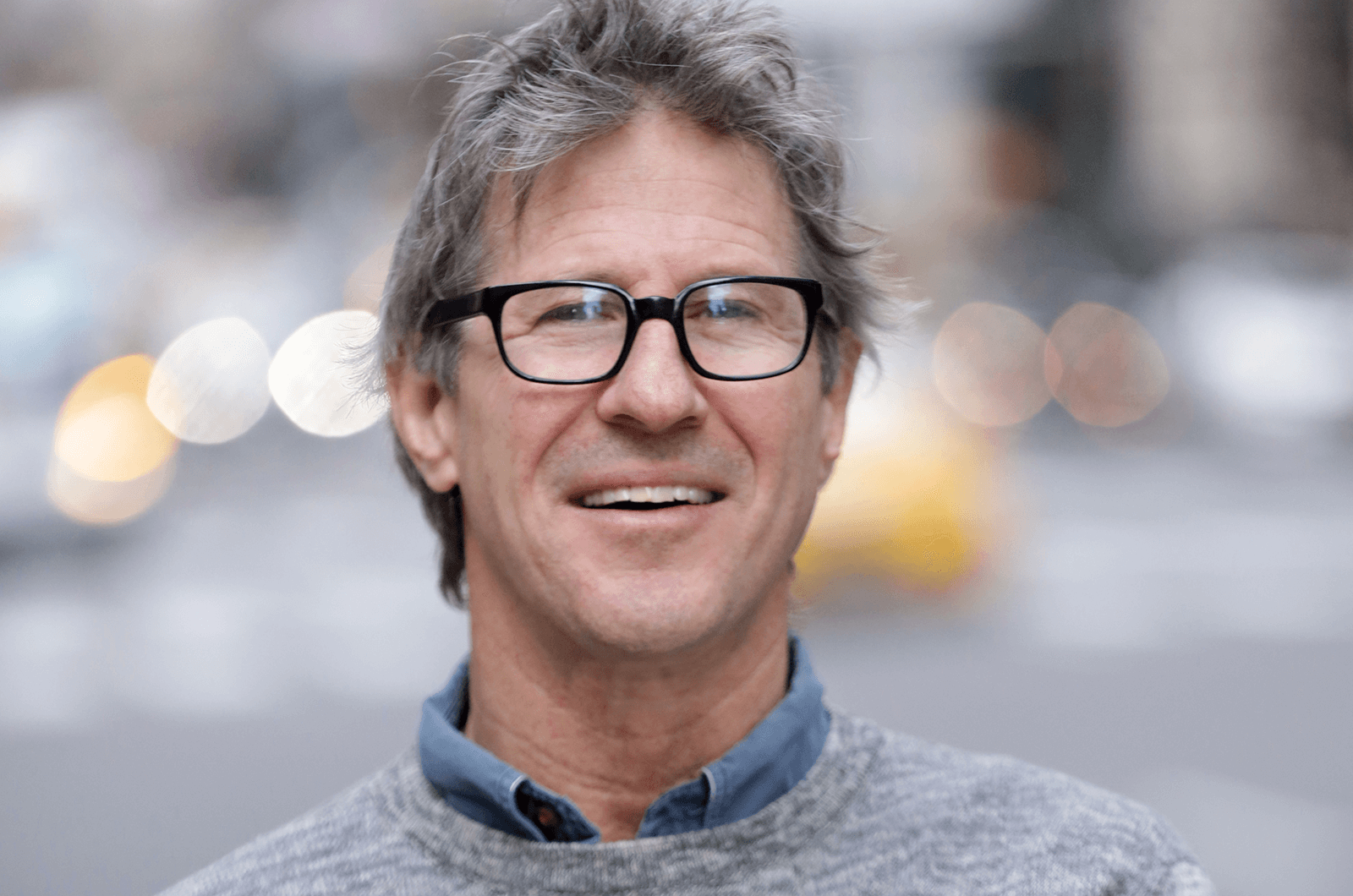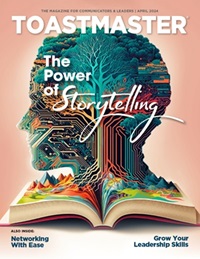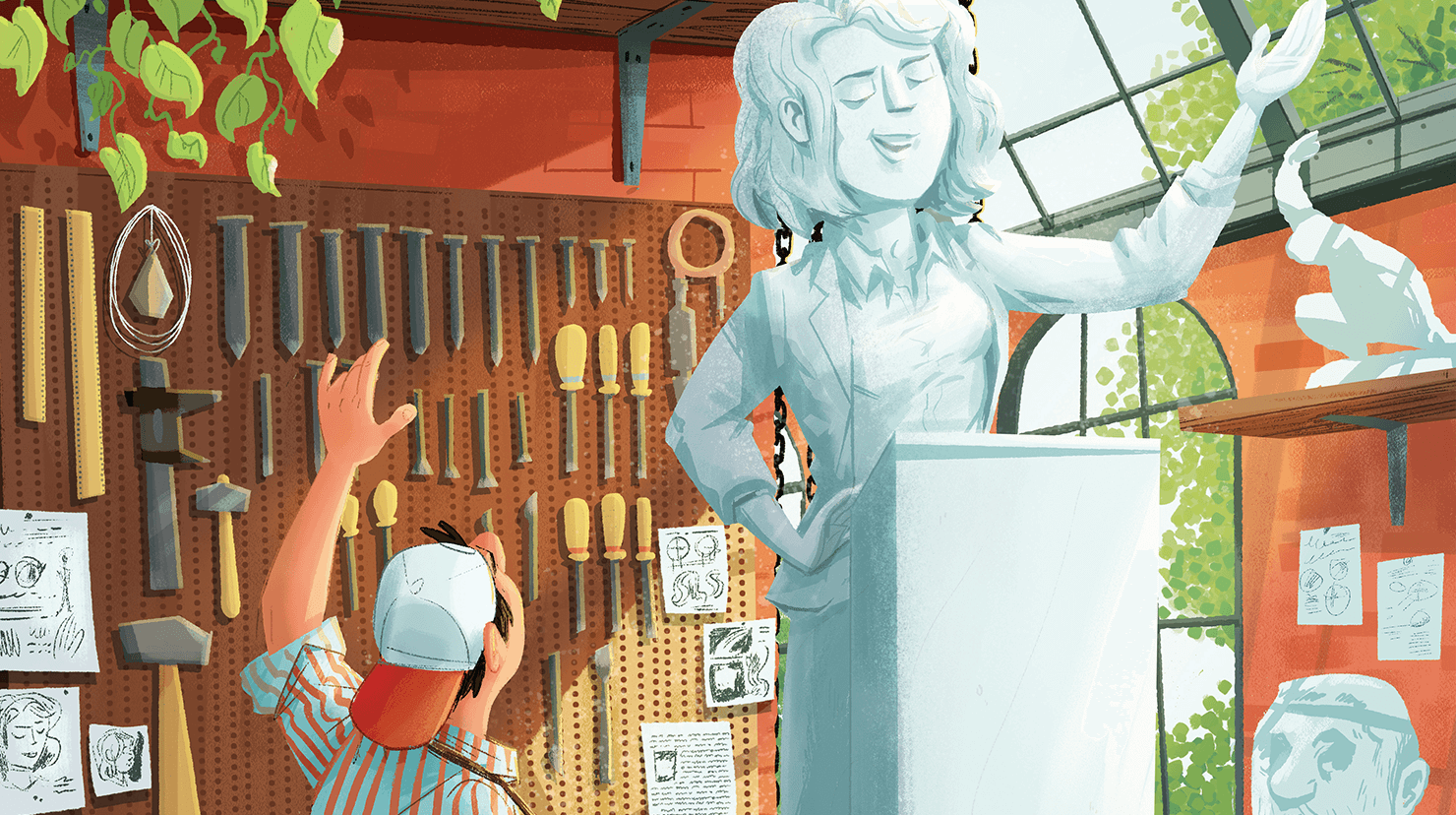
Click the play button to hear an interview with John Bowe and the hosts of The Toastmasters Podcast.
As a veteran journalist and author, John Bowe is used to talking to people. He has traveled the globe on assignment for publications like The New York Times and The New Yorker and prides himself on being able to talk to anyone. “I talk to princes and billionaires and prostitutes and criminals and farm workers and factory workers and everyone in between.”
But he always struggled with public speaking. “If you put me in front of a crowd, I could not make my brain and my mouth work together,” he says.
This led Bowe to spend eight years immersing himself in the subject of public speaking, resulting in the book I Have Something to Say: Mastering the Art of Public Speaking in an Age of Disconnection, published by Penguin Random House this month and available for purchase through the Toastmasters Online Store.
Bowe was introduced to Toastmasters in August 2011, while working on an article for The New York Times Magazine on the World Championship of Public Speaking®. He attended the Toastmasters International Convention in Las Vegas that year. The assignment spurred an interest in the relationship between communication and human connection. He will share his thoughts on this topic during the 2020 Virtual Convention this month, in his role as a featured session speaker.
What specifically intrigued you about the topic of public speaking?
I was interested in exploring my hypothesis that speech training helps us shed a sense of loneliness and alienation. I was fascinated by its power to do what psychiatry and psychotropic drugs try to do. And I was deeply curious about what it might do to help solve societal and political problems. I get more specific in the book, but on the simplest level, if we cannot talk to one another, we are in trouble.
I was not so much interested in the self-help or self-improvement point of view as much as the problems the world is facing right now. The fact that people feel incredibly distant from one another, incredibly disconnected, and nobody seems to get along very well … it seemed that underlying all these things is that we no longer get taught how to speak.
What about attending the Toastmasters International Convention resonated with you?
The first thing I noticed was how welcoming Toastmasters are. The second was how diverse they are. But after marveling at all the different styles of dress from countries around the world, what I noticed was that no one seemed so awed by the diversity; they were there to focus on their shared obsession with the art of speaking. What resonated with me, I think, was the essential humanism of it—and them. It was not a fad or a new technology they were interested in; they were studying how to be better humans.
You don’t typically join organizations you write about. What prompted you to move from New York to Minneapolis, Minnesota, and join a Toastmasters club there?
I realized that if I was going to write about the importance of speech training, I had to show how it works and what it means for people to find their own voice. It’s such an internal, nuanced, personal experience.
I had dutifully gathered all of these great stories from Toastmasters from all walks of life—rich, poor, famous. But I still could not write my book. From the beginning, the Toastmasters I met kept asking me when I was going to join their club. I told them, “The story isn’t about me, it’s about you. I’m an objective reporter, not a memoirist.” Well, in 2012, with enormous trepidation, I ended up joining Speakeasy Toastmasters, in St. Louis Park, Minnesota!
“Suddenly it hit me that maybe the world’s biggest problem is our lack of speech training.”
—John BoweIt was very much of a “physician, heal thyself” situation, because underneath all my intellectual curiosity was the simple fact that I had always been a terrible speaker myself. And in the end, my evolution from being a guy who can’t competently say what he is thinking and feeling to being a guy who can, was what gave oomph to tell everyone else’s stories and made the book take flight.
In researching the history of public speaking, what stood out to you?
I found it fascinating that for the ancient Greeks—and for the next 2,000 years for virtually all Western Europeans—the foremost component of education was rhetoric, which meant learning to speak, evaluate, and think critically about others’ speech and language. And now it is this vanished subject, for the most part.
I was thinking about the fact that 74% of Americans suffer from speech anxiety (it is the same or higher in most other cultures). All over the world, we are staring at screens all day and so few of us seem to know how to communicate well. So I thought, Hey, this is huge. What happened to this critical idea? What’s this doing to us?
What is it about the age of disconnection that makes you “have something to say”?
If you read through the ancient Greeks and Romans, and even the musings of Ralph C. Smedley, Toastmasters founder, on the subject of speech training, it’s clear they viewed it as a kind of individual and societal corrective. Smedley wrote about how when people cannot speak up and express themselves, this whole side of their personality and intellect just remains offline, so to speak. He felt that Toastmasters training could benefit the whole world by teaching us all how to listen better. When I read these views, I began to see speech training as the ultimate social justice app.
“It sounds crazy, but in the middle of our biggest dysfunctional trends right now lies a simple inability for people to talk to one another and hash stuff out.”
—John BoweLook around the world today at the rising levels of social isolation, of mistrust in government and in each other. For a long time, I thought these problems were the result of technology or that they stemmed from globalization or maybe rising wealth inequality. Suddenly it hit me that maybe the world’s biggest problem is our lack of speech training. It sounds crazy, but in the middle of our biggest dysfunctional trends right now lies a simple inability for people to talk to one another and hash stuff out.
Tell us about your interest in rhetoric and its place in society.
For the Greeks, speaking well was considered the indispensable skill. If you worked in any kind of profession that required managing people or interacting with others, you needed to be skilled at listening and speaking. Has anything changed since then? If you are smart but socially inept and/or bad with words, you are not going to get promoted. Your personal relationships are likely to suffer as well. You could even say that in many ways, communications skills trump IQ, work ethic, even character.
For individuals and for society, speech training really constitutes the ultimate survival skill. It’s what keeps good people engaged with all of life’s fights—in family life, politics, at work, and so on—and keeps us alive for another day, hashing out problems, instead of sulking off to the sidelines, filled with resentment. I can’t imagine anything more relevant to our modern-day problems!
Get to know John Bowe even more in his Q&A speaker showcase from the 2020 Virtual Convention.


 Previous
Previous
 Previous Article
Previous Article

